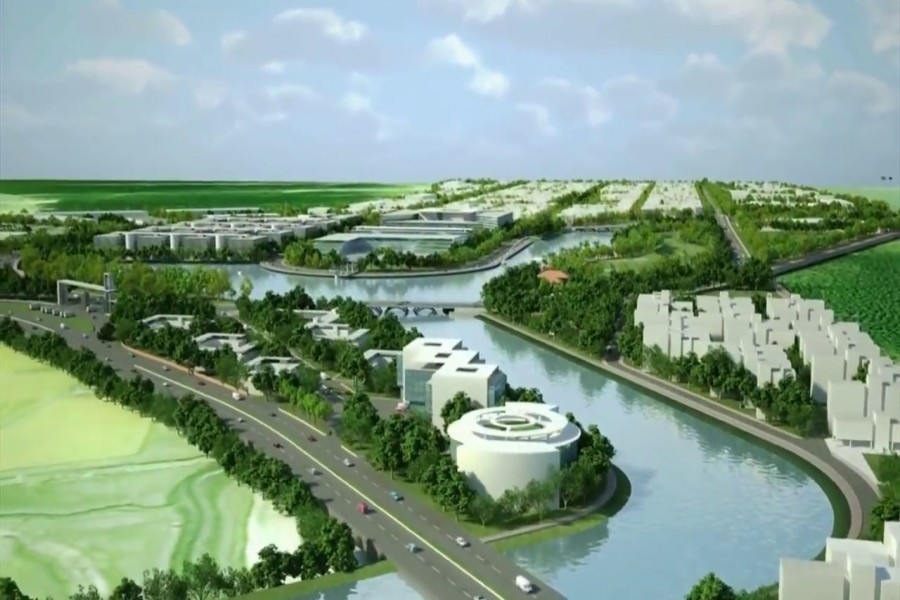Investment proposals for the country's economic zones (EZs) have amounted to US$ 6.25 billion with both foreign and local entrepreneurs showing a growing interest in setting up industries in those.
Foreign investors, however, emphasised improving Bangladesh's business climate as well as making timely response to requirements of potential investors and measures of other countries taking the changing global supply chain into consideration.
They also called for proper implementation of fiscal and tax incentives to attract more foreign direct investment (FDI) in the country.
The statistics and observations were presented in a business session of the two-day International Investment Summit 2021 Bangladesh at Radisson Blu Dhaka Water Garden in the city.
President of India-Bangladesh Chamber of Commerce and Industry (IBCCI) Abdul Matlub Ahmad moderated the session, and Land Minister Saifuzzaman Chowdhury also spoke at the event.
Addressing the session, the minister said people of the world are quite interested about Bangladesh due to its potentials.
Terming FDI important for the country's economic development, he said land is an important component of FDI. The government is setting up a total of 100 economic zones, while some of these are already established.
He called on foreign investors to invest in the country and grab its potentials.
"Investment in the economic zones continues amid the Covid-19 pandemic, and some 106 investors have so far made $6.25 billion investment proposals," said executive member of Bangladesh Economic Zones Authority (BEZA) M Erfan Sharif while presenting his keynote titled 'economic zones: exceeding all expectations'.
The proposed 100 EZs would be set up by 2030, while 97 are already approved. These zones would generate direct and indirect employment for about 10 million people with $40 billion production, he noted.
Explaining the reasons why Bangladesh's EZs are the best place to invest, Mr Sharif said skilled workforce, adequate serviced land, uninterrupted utility connections, and fiscal and non-fiscal incentives are available in those, while there are opportunities for both domestic and international markets.
Detailing the fiscal and non-fiscal incentives and other unique features, he called on foreign investors to invest in the country's economic zones, especially in Jamalpur, Sreehatta, Maheshkhali and Araihazar EZs as well as in Bangabandhu Sheikh Mujib Shilpa Nagar.
Speaking at the session, chief representative of JICA Bangladesh Yuho Hayakawa, however, focused on improving investment climate with proper implementation of incentive policies.
"The EZs are important for attracting FDI in Bangladesh, as these can provide necessary infrastructure, utility services, and efficient and transparent process for investment. We can proceed to one-stop services and streamline custom clearances."
The country needs to overcome these hurdles, as these are the challenges and weak points of Bangladesh.
"Piecemeal approaches should be avoided," he said, explaining that the EZs have strong fiscal and tax incentives, but other countries are also offering powerful incentives.
Mr Hayakawa focused on the necessity of improved business climate, skill development, and neutral monitoring.
"We are in the middle of global competitiveness, as global supply chain is getting re-structurd especially during and after the Covid-19 pandemic."
The global value chain is rapidly changing and so are the needs of investors. Other countries' responses are also changing, he mentioned, calling Bangladesh government for ensuring timely response with flexibility in this regard.
Bangladesh government has strong willingness to overcome these challenges, he opined.
Explaining the role of EPZs, World Bank Country Director for Bangladesh, Bhutan and South Asia Region Dr Mercy Miyang Tembon said the EPZs are making positive development by bringing FDI and creating employment.
"Bangladesh is one of the countries, where the EPZs have made impact and continued to make impact. These can be an example for all the countries in the region and the world."
She, however, suggested product diversification and ensuring EPZs' contribution towards smart, green and inclusive growth.
General Manager of Sumitomo Corporation, Dhaka Office Shinichi Nagata said construction of the Japan Economic Zone is expected to be completed shortly and it would start operation next year.
"Now we are receiving very strong queries from investors," he informed the session.
Executive Chairman of Bangladesh Export Processing Zones Authority (BEPZA) Abul Kalam Mohammad Ziaur Rahman said prospective investors can choose Bangladesh as the best destination for investment, and it would be their right choice.
Some 459 enterprises have so far invested a total of $5.74 billion in the country's eight EPZs under the BEPZA that have created 0.5 million employment. Annual exports of the EPZs stood at $6.64 billion, he added.
President of Bangladesh Private Economic Zones Investors Association A S M Mainuddin Monem also spoke at the session.


